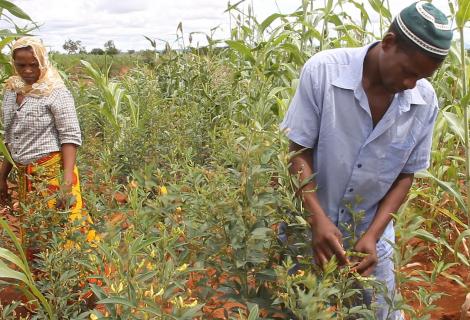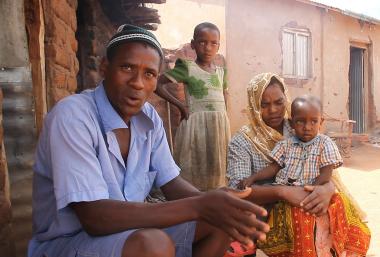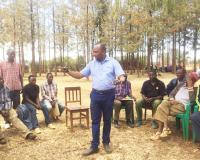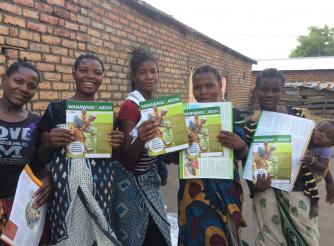Improving Gender Relations Through SNAP Project

Jumanne Khamis and his wife Mariam live in Ntondo village of Singida District which is in the central part of Tanzania. They are among members of groups formed under Singida Nutrition & Agro-ecology(SNAP) project implemented by AATZ and other partners. Jumanne joined the group in 2016 after mobilisation and awareness conducted by mentor farmers in their village.
Having savoured the benefits of the project, Jumanne shares his testimony on how his participation changed his perception as a man towards gender roles at family level.
“In the beginning, we had a perception that this project is for women and children. But after understanding that it was meant for both of us, we started to participate fully in the group activities,” said the seemingly jovial Jumanne
He added that apart from learning agroecological farming practices, which are the major aspect of the project, they also learnt about gender equality especially issues of violence, importance of participatory decision making in the family and division of responsibilities between men and women at all levels.
“Before joining the SNAP group it was difficult for me to help my wife with domestic
chores. I used to think all family and house responsibilities are for women, hence I had no time for it. But trainings have changed my perception and nowadays I help my wife to fetch water, attend the children and even cooking,” narrated Khamis.
On her part, Mariam (Jumanne’s wife) also testifies on how the project has helped to change the attitude of men in her village, including her husband
“Through this project, we are currently seeing men in our village changing… For example, nowadays my husband is helping me in all family responsibilities; we make all decisions together something which was not there before,” narrated Mariam
Pili Shaban who is a mentor farmer in Ntondo village also explains that participation of men in farmers’ groups has brought a great deal of change to men."Our group had 56 members (28 female and 28 men). Men are very active in the groups and now we are witnessing their engagement in family responsibilities increasing and cases of women abuse and violence are also reduced to a greater extent, said Pili
She further added that generally through the project, agro-ecological farming practices led to improved food security at household level and nutrition for children. “We applied all the knowledge that we were taught by agriculture experts and as a result farmers have harvested more than previous years. We have really benefitted from this project and now other community members want to join the groups”. Pili concluded.
ActionAid Tanzania has been implementing the project to promote food security and enhance women’s role at household and community level. The project focuses on promoting agro-ecology and gender involving women farmers. The project has been using peer learning approach to create a friendly learning environment among farmers under the leadership of mentor farmers


